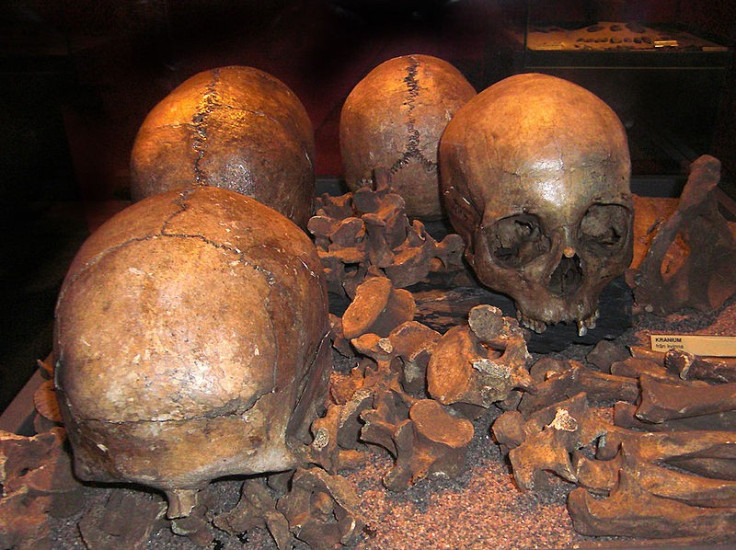Prehistoric Puzzle: Middle Eastern Farmers Vanished from Europe 5,000 Years Ago

New DNA evidence shows Middle Eastern farmers inhabited Europe before modern Europeans made it their own, but disappeared around 5,000 years ago.
The evidence suggests the Middle Eastern migrants arrived around 5500BC, and their disappearance 2,500 years later paved the way for new settlers who form the genetic basis of modern Europeans.
Skeletons found in central Germany have been used by researchers to map the genetic history of modern Europe.
The team from the University of Adelaide's Australian Centre for Ancient DNA (ACAD) looked at bone and teeth samples from prehistoric human skeletons.
They used the DNA to sequence the genetic lineages that are carried by up to 45 percent of Europeans today.
Wolfgang Haak, joint lead author of the study published in Nature Communications, said: "This is the first high-resolution genetic record of these lineages through time, and it is fascinating that we can directly observe both human DNA evolving in 'real-time', and the dramatic population changes that have taken place in Europe.
"We can follow over 4,000 years of prehistory, from the earliest farmers through the early Bronze Age to modern times."
Paul Brotherton, another lead author, added: "The record of this maternally inherited genetic group, called Haplogroup H, shows that the first farmers in Central Europe resulted from a wholesale cultural and genetic input via migration, beginning in Turkey and the Near East where farming originated and arriving in Germany around 7500 years ago."
Something major happened
However, the authors then found an "unexplained genetic turnover" that took place between 4,000 and 5,000 years ago.
ACAD director Alan Cooper said the genetic markers of the first Middle Eastern settlers were "clearly very successful", but they were suddenly replaced: "Something major happened, and the hunt is now on to find out what that was."
Researchers say the genetic foundations for modern Europeans were established during the middle neolitich period. The gene pool was then modified further by settlers arriving from Iberia and Eastern Europe.
Brotherton said: "The expansion of the Bell Beaker culture (named after their pots) appears to have been a key event, emerging in Iberia around 2800 BC and arriving in Germany several centuries later.
"This is a very interesting group as they have been linked to the expansion of Celtic languages along the Atlantic coast and into central Europe."
Cooper said their research provides the opportunity to investigate the demographic history of Europe. "We can not only estimate population sizes but also accurately determine the evolutionary rate of the sequences, providing a far more accurate timescale of significant events in recent human evolution."
© Copyright IBTimes 2025. All rights reserved.






















